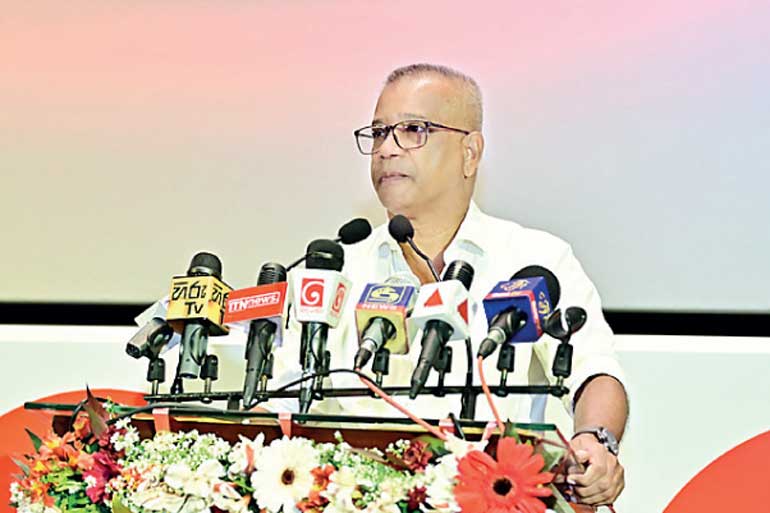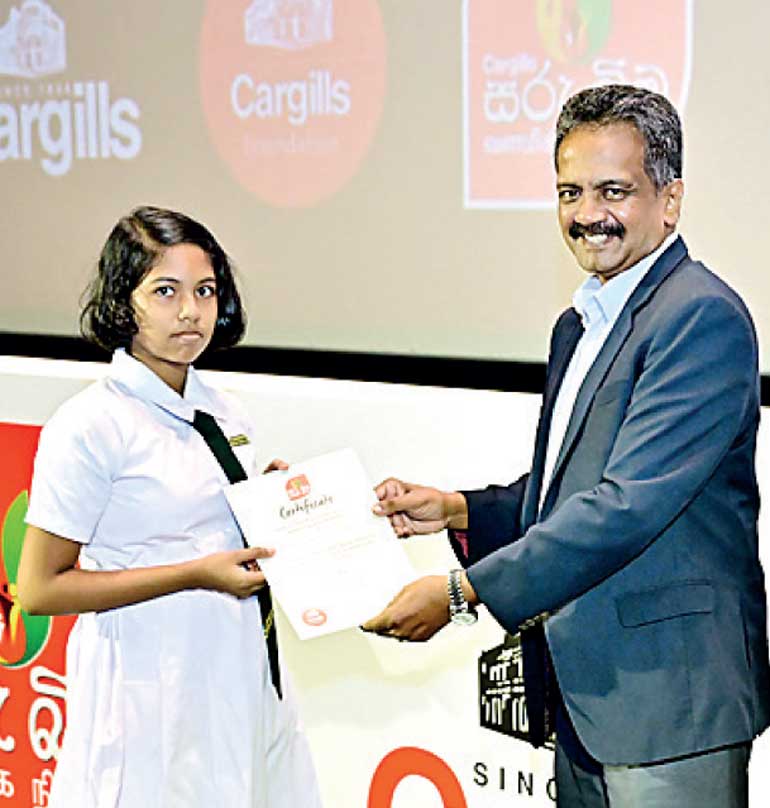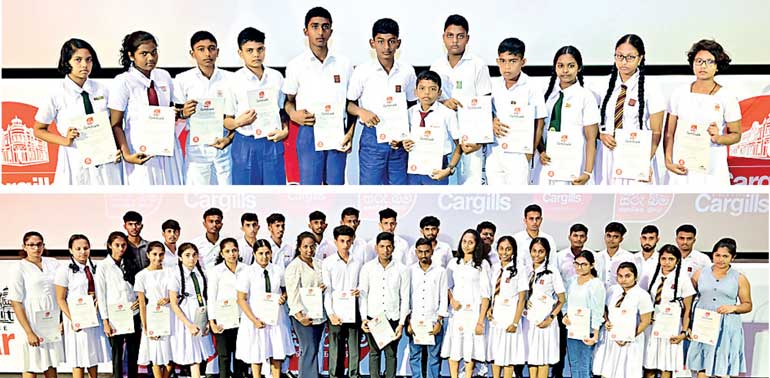Sunday Feb 22, 2026
Sunday Feb 22, 2026
Wednesday, 3 September 2025 00:26 - - {{hitsCtrl.values.hits}}



Cargills (Ceylon) PLC recently presented educational scholarships to students from farming communities at a ceremony held on 29 August, an initiative that part of the Cargills Sarubima program. The event was attended by Agriculture, Livestock, Land, and Irrigation Minister
K.D. Lal Kantha, as the Chief Guest, along with Secretary to the Ministry D.P. Wickramasinghe, members of the media, distinguished invitees from international development organisations, and Directors and senior management of Cargills.
This year, the company allocated over Rs. 115 million through the Cargills Sarubima program to support both student scholarships and rural community projects. Of this, over Rs. 50 million is dedicated to educational scholarships, benefiting over 1,300 students through Grade five and A/Level scholarships, vocational training, and laptops for university students. Over Rs. 60 million is allocated to community development initiatives, including upgraded libraries, smart classrooms, clean water systems, sanitation facilities and preschool infrastructure enhancements.
Beyond providing scholarships and developing community infrastructure, the Cargills Sarubima program aims to enhance students’ knowledge by improving access to quality education and equipping them to become future leaders of Sri Lanka.
Since its inception in 2008, the Cargills Sarubima program has been a key pillar of the company’s Corporate Social Responsibility efforts. It reflects Cargills’ philosophy of working directly with rural farming communities across Sri Lanka. It was established to build a deeper connection with these farmers and their families, recognising their hard work and contribution to the nation. Over the years, thousands of families have benefited, and this year, Cargills has significantly increased its allocation to further expand the program’s impact.
Speaking at the event, Minister Lal Kantha commended the Cargills Group for its significant contribution to strengthening Sri Lanka’s farming community. He highlighted the Group’s role in creating reliable markets for local farmers and connecting them directly with consumers. The Minister recalled a recent instance where Cargills stepped in to purchase a surplus harvest, ensuring farmers’ livelihoods were protected – a responsibility, he noted, that very few in the country are able to shoulder.
As the largest buyer of fresh produce and milk in Sri Lanka, Cargills engages with over 23,000 smallholder farmers across the island, providing access to technology, agricultural extension services, credit facilities, quality inputs, and assured market access. Annually, Cargills purchases over Rs. 18 billion worth of fresh produce and milk from these farmers, with these payments flowing directly into rural communities, supporting the backbone of the nation’s economy. This integrated approach ensures sustainable support while enhancing productivity and livelihoods.
Building on these initiatives, Cargills has continued to expand its investments, adding new retail stores and food processing factories, thereby creating greater market opportunities for farming communities. Over the years, these investments have grown significantly, enabling Cargills to provide farmers with an ever-expanding marketplace.
In 2019, recognising the need to further enhance farmers’ incomes, Cargills launched the Agriculture Modernisation Project. The initiative equips farmers with climate-smart agricultural techniques, introducing modern practices such as drip irrigation, polythene mulches, and insect-proof netting that increase yields, reduce input costs, enable multiple harvests, and ensure high standards of quality and safety, fostering sustainable and productive agriculture.
The Cargills Sarubima Scholarship awarding ceremony, held at the Regal Cinema at Cargills Square Mall, Dematagoda, exemplified Cargills’ long-term commitment to supporting the agriculture sector, strengthening rural communities and building the next generation of leaders in Sri Lanka.